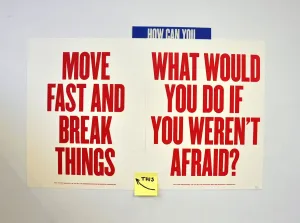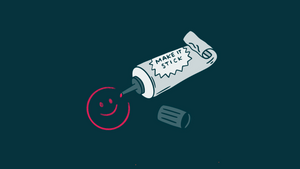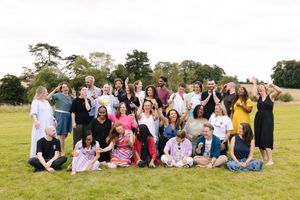
The effects of Covid-19 and beyond won’t be fixed by subscriptions and extra holidays. Well-meant gestures are only scratching the surface of a new kind of workplace emerging post-pandemic, and the organisations embracing this shift will not only survive, but thrive.
For many, the Covid-19 frontline is still very real, and today those workers are in the middle of their shifts. Some of their previously applauded “key worker” roles are starting to recede back from the spotlight, with little change to their already strained, stressful working environments.
The last 18 months have brought many of them a constant overload of daily firefighting, leaving little breathing room to get everything done, and virtually no time for a tea break. If they are lucky to have one, it could be spent hunched over in a stairwell or in a cramped vehicle because there may be no physical space for rest.
Sat behind desks, the white collar population are stumbling into the “new normal”. This comes after surviving a series of lockdowns where they supported families through crisis, battled loneliness and struggled to hold onto jobs. Burnout, poor mental wellbeing and neglected physical health are rife as many question the role of work within their post-pandemic lives.
Well-meaning managers have been doing what they can, turning to one-size-fits all approaches that land within budget. Stories of free yoga classes, access to meditation apps and additional leave have all been applauded recently, but while these are offered in good faith, they require staff to switch off, relax and “fix” themselves on their own time after clocking off a long day.
Meanwhile, in C-Suite Zoom meetings profit and productivity are often at the centre of conversations. But while Covid-19 has bumped staff wellbeing higher on the agenda than ever before, the lack of org-level, systemic wellbeing initiatives is resulting in lost productivity and lack of engagement costing businesses £87-£262 billion a year. 46% of workers feel ‘more prone to extreme levels of stress’ compared to just a year ago, but even before the pandemic, staff were doing overtime, confronting new challenges with no quick fixes at work (where we all spend a third of our lives).
Evidence points to a clear link between a healthy work culture and business success, yet most initiatives still aren’t being designed or implemented effectively.
According to Aon, 87% of companies have employee wellbeing initiatives, but don’t have a strategy. And of those initiatives, only 5.6% of benefits are used. This may be because benefits are inaccessible or not relevant to some staff. Wellbeing initiatives are often designed for the needs of office-based white collar employees who work nine to five, and as such, may not incorporate workforce diversity and the ever-changing conditions that many people are facing, leaving many to slip through the cracks.
Putting designed measures in place that will have real impact is a challenge, and while uptake, profit and productivity can be easily measured, we still don’t know how to measure wellbeing itself. Employees are ultimately the ones who are let down by this, and the organisations they trust to care for them will be impacted as a result.
"We need to shift the conversation from wellbeing to business resilience. Once you recognise that people are your biggest asset that translates to your bottom line. It just makes business sense and completely changes the tone of the conversation."
Gita Luz, Well_Lab Lead
According to a first of its kind study in Britain in 2014, there’s a positive link between a healthy workplace culture, and “business resilience”. As one manager responsible for ensuring the health and wellbeing at a leading NHS Trust told Well_Lab, it’s about shifting from a “patient-first” mentality to a new principle: “If you don't take care of your people, you can't take care of your patients,” they explain. Other research, like that from Aon, has found a correlation between improved employee wellbeing performance and customer satisfaction and retention.
“If you don't take care of your people, you can't take care of your patients.”
Associate Director of Culture Change & Wellbeing, NHS Trust
More than $2bn has been invested in digital employee wellbeing businesses in the last two years, but fewer than 15% of these are evidence-based initiatives.
There’s a world of benefits on offer, but even for the few which are backed by science, it’s team and organisation-level change that leads to the psychological safety, positive team culture and sense of purpose which allows people to thrive and businesses to flourish.
The effects of Covid and the emotional stress and mental health fallout from it won’t be solved by peripheral perks, which just scratch the surface. And while additional time off is a welcome gesture, it won’t erase the root causes of poor wellbeing, which will still be lurking when staff return from their holidays.
It’s time to stop seeing employees as being personally responsible for their own health and wellbeing. Only solid infrastructure and working practices will achieve sustainable and equitable change within organisations. And while there is something inherently human about pausing to listen to how your employees are actually doing at work, it also makes good business sense.
While caring businesses may view staff wellbeing as their responsibility, smart ones make it their strategy.
Well_Lab is a new venture, backed by the Wellcome Trust and powered by Brink. We’re looking for five forward-thinking leaders to join us as the founding members to beat workplace burnout.
We are empowering organisations to listen, learn and test workplace health strategies that are underpinned by a deeper level of evidence surfaced from within their own workforces. Our experimental approach carves out the space needed for organisations to trial evidence-based wellbeing strategies: by putting them into practice, they can learn what actually works for them.
Well_Lab is taking applications from business leaders until January 2022. Email [email protected] to express interest or book an exploratory call at tinyurl.com/burnoutpandemic





